 Les Figues Press held their NOS Book Contest every year from 2011-2015, awarding $1,000 and publication to a writer of a poetry or prose manuscript, which includes lyric essays, hybrids, translations, and more.
Les Figues Press held their NOS Book Contest every year from 2011-2015, awarding $1,000 and publication to a writer of a poetry or prose manuscript, which includes lyric essays, hybrids, translations, and more.
The 2015 contest was judged by author and performance artist lê thi diem thúy, who chose Irradiated Cities by Mariko Nagai. She says of her selection:
This book, a sifting and circling, a calm and masterful layering of voices and vantage points, a slowly emerging portrait of four different Japanese cities and their inhabitants, resists any effort at arrivals or conclusions. By doing so, it shows us that while we may have an accumulation of facts for what happened on a particular day in a particular place, perhaps even the names and words and pictures of the people to whom catastrophe struck, and would not let go, it is within the dark sedimentation and the feather-light drift of history that we might glean what yet remains, and gives off light, to summon and trouble us still.
Nagai explores the aftermath of the Hiroshima and Nagasaki bombings and the nuclear meltdown at Fukushima. With lyrical fragments and black-and-white photographs, Nagai guides us through loss, silence, echo, devestation, and memory, creating a haunting piece of work.
Read through advance praise of the collection and order a copy for yourself at the Les Figues Press website.

 Today, Shanti Arts announced changes coming to
Today, Shanti Arts announced changes coming to  This cover photo “Fête de la Rose” by Rebekah West introduces readers to
This cover photo “Fête de la Rose” by Rebekah West introduces readers to 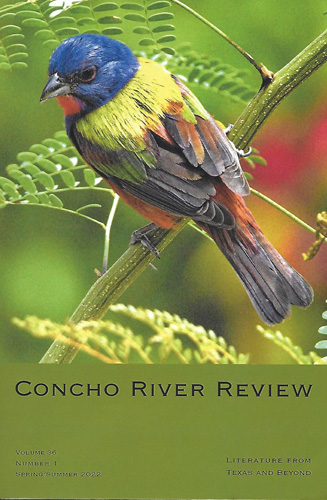 Tim L. Vasquez of Ziva-Gato Impressions contributed this gorgeous photo for the cover of
Tim L. Vasquez of Ziva-Gato Impressions contributed this gorgeous photo for the cover of  Recognizing “the exciting literary, artistic, and scholarly work that is currently produced along the Wasatch and beyond” is the focus of the Spring/Summer 2017 issue of
Recognizing “the exciting literary, artistic, and scholarly work that is currently produced along the Wasatch and beyond” is the focus of the Spring/Summer 2017 issue of 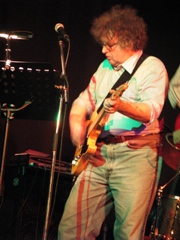 The American Poetry Review
The American Poetry Review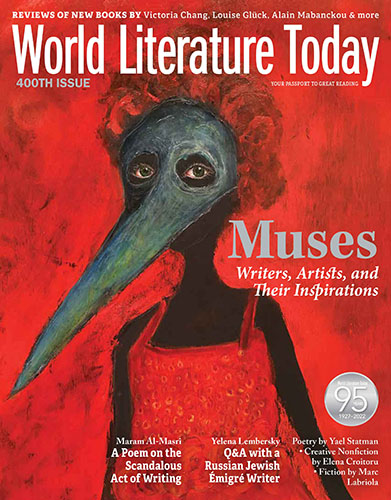 The May – August 2017 issue of
The May – August 2017 issue of 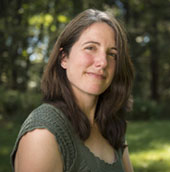 Fiction Winner
Fiction Winner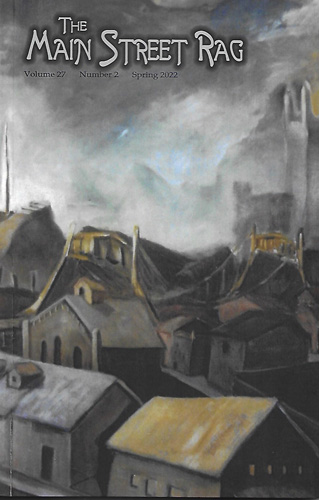 In his Spring 2017 Welcome Readers! section,
In his Spring 2017 Welcome Readers! section, 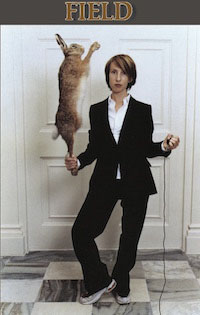
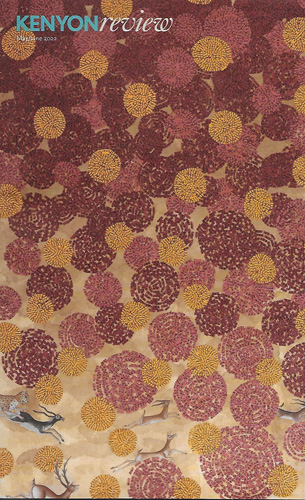 This work by Jody Hewgill on the cover of
This work by Jody Hewgill on the cover of 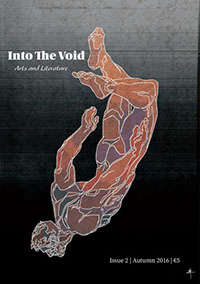 The dramatic “Suffering” by Virginia Vilchis is the cover art for the Summer 2017 of
The dramatic “Suffering” by Virginia Vilchis is the cover art for the Summer 2017 of 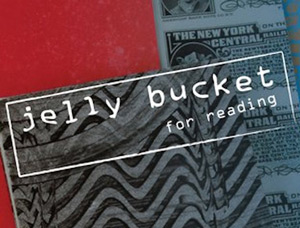 Jelly Bucket
Jelly Bucket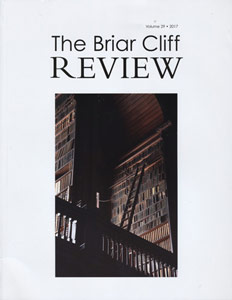 Pick up a copy of the 2017 issue of
Pick up a copy of the 2017 issue of 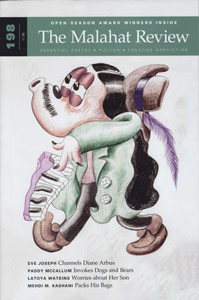 The Spring 2017 issue of
The Spring 2017 issue of 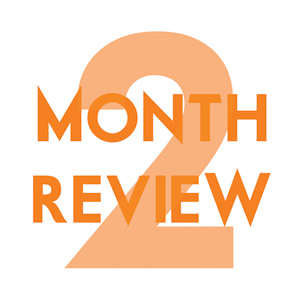 Three Percent Podcast is now expanding from their weekly(ish) episodes to include weekly Two Month Review mini-episodes. Each season of the new mini-episode series will highlight a different Open Letter book, reading it over the course of eight to nine episodes. Rotating guests will join host Chad W. Post, using the reading selection as a springboard for further discussion on literature, pop culture, reading approaches, and more.
Three Percent Podcast is now expanding from their weekly(ish) episodes to include weekly Two Month Review mini-episodes. Each season of the new mini-episode series will highlight a different Open Letter book, reading it over the course of eight to nine episodes. Rotating guests will join host Chad W. Post, using the reading selection as a springboard for further discussion on literature, pop culture, reading approaches, and more. Les Figues Press held their NOS Book Contest every year from 2011-2015, awarding $1,000 and publication to a writer of a poetry or prose manuscript, which includes lyric essays, hybrids, translations, and more.
Les Figues Press held their NOS Book Contest every year from 2011-2015, awarding $1,000 and publication to a writer of a poetry or prose manuscript, which includes lyric essays, hybrids, translations, and more.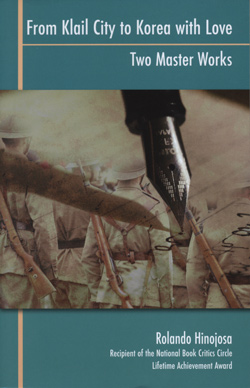 At the end of April, Arte Publico Press released a two-volume collection from Rolando Hinojosa. From Klail City to Korea with Love contains Rites and Witnesses and Korean Love Songs from the Klail City Death Trip Series.
At the end of April, Arte Publico Press released a two-volume collection from Rolando Hinojosa. From Klail City to Korea with Love contains Rites and Witnesses and Korean Love Songs from the Klail City Death Trip Series.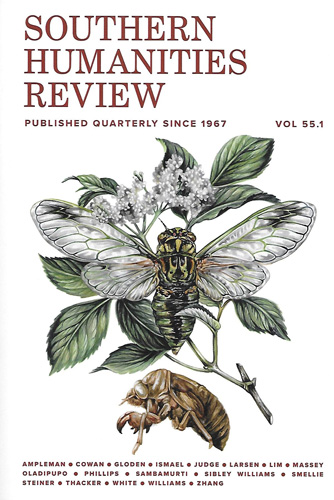 Southern Humanities Review
Southern Humanities Review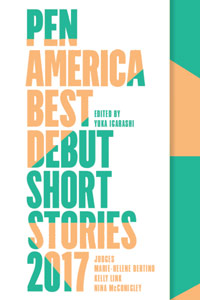 The PEN/Robert J. Dau Short Story Prize for Emerging Writers recognizes 12 emerging fiction writers for their debut story published online or in a literary magazine during the calendar year. The twelve winners each receive $2000 and are to be compilated in the inaugural anthology published by Catapult in August 2017.
The PEN/Robert J. Dau Short Story Prize for Emerging Writers recognizes 12 emerging fiction writers for their debut story published online or in a literary magazine during the calendar year. The twelve winners each receive $2000 and are to be compilated in the inaugural anthology published by Catapult in August 2017. Saturday is the day! April 29 is the 4th Annual Independent Bookstore Day. Indie bookstores across the United States are gearing up to celebrate with exclusive items, literary activities, readings, author signings, giveaways, and more this upcoming Saturday.
Saturday is the day! April 29 is the 4th Annual Independent Bookstore Day. Indie bookstores across the United States are gearing up to celebrate with exclusive items, literary activities, readings, author signings, giveaways, and more this upcoming Saturday.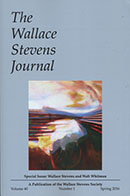
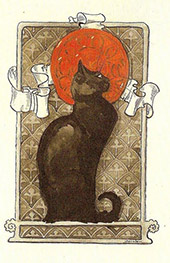 When he sought to name his newly envisioned academic journal for high school writers, Theodore Bass said the word ‘curious’ embodied what he wanted to do with the publication. In French, the word is ‘curieux,’ which Bass thought had a nicer ring to it. Thus,
When he sought to name his newly envisioned academic journal for high school writers, Theodore Bass said the word ‘curious’ embodied what he wanted to do with the publication. In French, the word is ‘curieux,’ which Bass thought had a nicer ring to it. Thus, 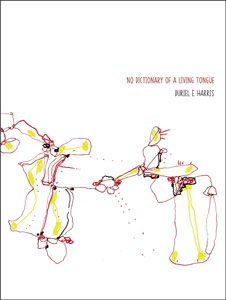 Nightboat Books publishes the winners of the annual Nightboat Poetry Prize, the 2015 winner to be released next month: No Dictionary of a Living Tongue by Duriel E. Harris. Judge Kazim Ali says of the poetry collection:
Nightboat Books publishes the winners of the annual Nightboat Poetry Prize, the 2015 winner to be released next month: No Dictionary of a Living Tongue by Duriel E. Harris. Judge Kazim Ali says of the poetry collection: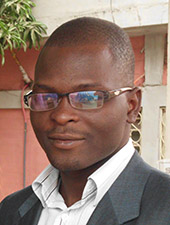
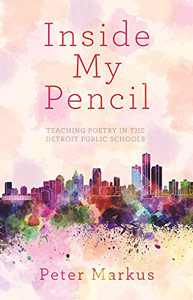 Recently chosen as a
Recently chosen as a 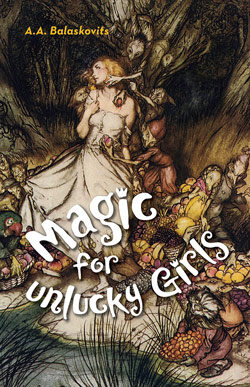 The Santa Fe Writers Project hosts their
The Santa Fe Writers Project hosts their 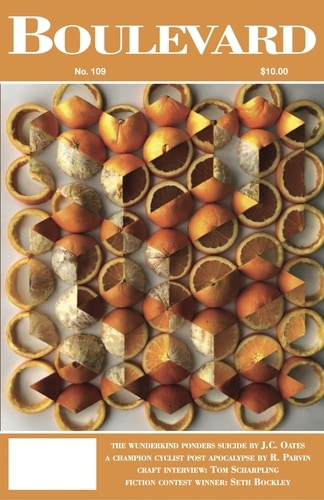 The Spring 2017 issue of
The Spring 2017 issue of  Lawrence Foundation Prize
Lawrence Foundation Prize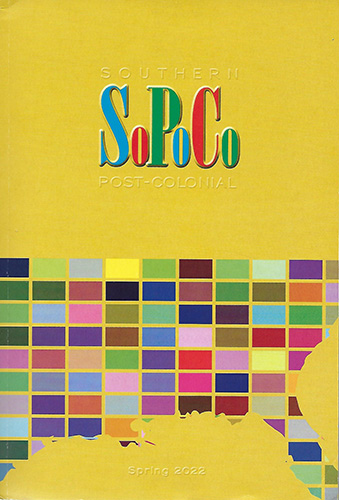 Erin McIntosh is the featured artist in this 70th anniversary issue of
Erin McIntosh is the featured artist in this 70th anniversary issue of 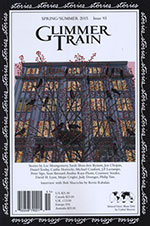 “Forgetten” by Jane Zwinger on the Spring/Summer 2017 issue of
“Forgetten” by Jane Zwinger on the Spring/Summer 2017 issue of 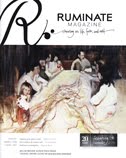 The cover of
The cover of 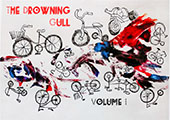 The Drowning Gull
The Drowning Gull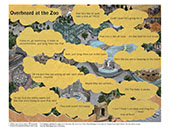 The April 2017 broadside collaboration from Broadsided Press is “
The April 2017 broadside collaboration from Broadsided Press is “